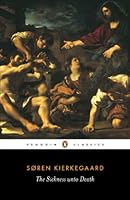Sublime
An inspiration engine for ideas
The Writings of Kierkegaard: Fear and Trembling; Purity of Heart Is to Will One Thing; The Sickness Unto Death
amazon.com

Here, then, is the conundrum we face. Our surprisingly deep discontent leads us to lock our hearts onto things with profound intensity. The ancients wisely taught that the only way to avoid unhappiness is to avoid this “love as attachment,” that is, to attach ourselves so powerfully and exclusively to an object or person that we cannot imagine life
... See moreTimothy Keller • Making Sense of God: Finding God in the Modern World
The most important thing for me is Kierkegaard’s insistence that being a totally ordinary human being is an enormous task and a declaration of faith from above, and that when you are lucky enough to be given this one life on earth as a human being, then you need to live it with complete sincerity and full responsibility.
how to change your life, part 2: agnes callard's aspiration

Karl Jaspers. He and Heidegger had become close after they met at Husserl’s birthday party — the one at which Malvine referred to Heidegger as the ‘phenomenological child’. As Jaspers lived in Heidelberg, they only travelled to see each other occasionally, but their correspondence and long-distance friendship were warm. They had many points of
... See moreSarah Bakewell • At the Existentialist Café: Freedom, Being, and Apricot Cocktails with Jean-Paul Sartre, Simone de Beauvoir, Albert Camus, Martin Heidegger, Maurice Merleau-Ponty and Others
Truth and Subjectivity, Faith and History: Kierkegaard's Insights for Christian Faith
amazon.com

